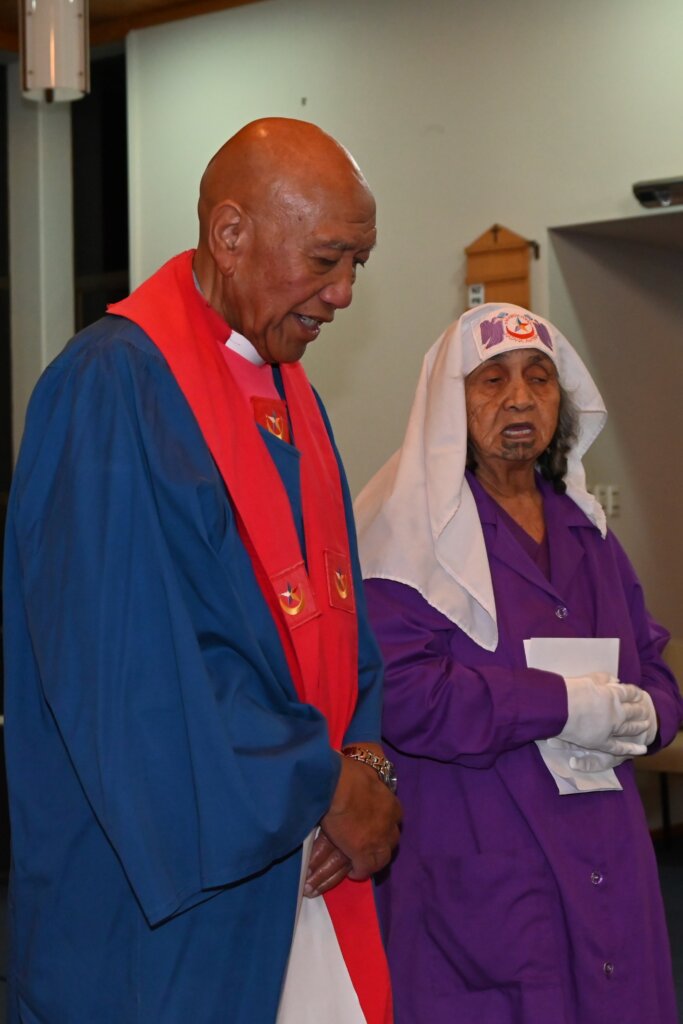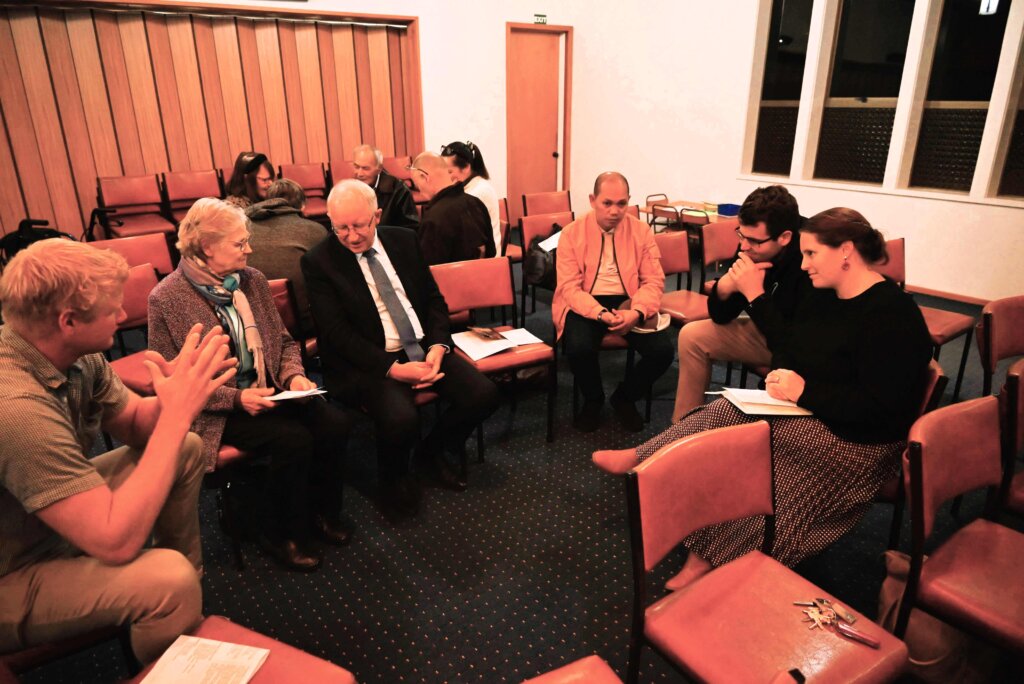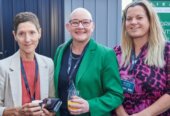In New Zealand children are 50 per cent more likely to die by homicide than in Australia, Waitomo Mayor John Robertson said at an inter-church prayer meeting at Te Kūiti on Sunday.
The meeting at St Luke’s Anglican Church was called to pray for Te Kūiti following the death of 10-month-old baby Mustafa Ali on June 1.

Ratana minister Phillip Campbell and his wife Maadi Jacobs opened the prayer meeting on Sunday night. Photo: Paul Charman.
In opening the prayer meeting, Robertson told the gathering of more than 30 people, “Mustafa died from wounds inflicted upon him just up the road, in our neighbourhood”.
“Te Kuiti is a typical rural town. This is our village, a place where we grow up. Many of us are born here, many of us play here, go to school here, shop here, have a job here. We are a proud community.
“We have our Pā, we have our family support services, we have our schools, we have our sports facilities, our parks and reserves, our awa with a swimming hole. We have a library, a new recreation centre, a town hall to gather in. We have so much.
“Yet, like all communities in New Zealand, we have our social issues. And some, like child abuse, are too often hidden from us. We should hold our heads in shame at some of the statistics.”
He recalled some children killed in recent years.
In 2018, in Porirua, five-month-old Lincoln was shaken to death by his father.
In 2019, in Hokitika 10-month-old CJ White was killed by his father.
In 2021 in Timaru, two-year-old twins Maya and Karla and their older sister Liané, were murdered by their mother.
“Some of the names of these child victims are etched in our memory – the three month old Kahui twins, a case not yet solved. Three-year-old Nia Glassie. Baby Ru. The list goes on. Our country has one of the worst records of child abuse in the developed world. One child dies from abuse every five weeks in Aotearoa,” Robertson said.
“. . . It is important to reflect on the why this happened and the what we as a community can do about it. No baby should suffer in their home.”
Robertson shared that in 1991 he discovered the book, “Children an Endangered Species” by Dame Lesley Max, and how it changed his life. He met the author and become chairman of her trust, “Great Potentials Foundation”.
“Lesley has devoted her life to helping children and families. She delivered parenting programmes into communities first in South Auckland, then nationally. It was from my association with her that I became a believer in the power of communities, concepts like, It takes a village to raise a child’; of research like the importance of the first two years of a child’s life – where most of our learning takes place; of early childhood education; of the importance of having warm dry homes; of the importance of primary healthcare.
He said he reflected on Mustafa’s short life and turned to the question of what the community needed to do better.
“Mustafa was our child. His father and mother worked in our community. It would be remiss of us not to ask the question, could we have prevented this tragedy and what we can do to prevent this happening in our community again?
“We are a village. If it takes a village to raise a child, to support families, to report abuse, let’s do it and at the same time improve the way we support one another.”

Mayor John Robertson at the inter church meeting. More than 30 people broke into small groups to pray for Te Kūiti at St Luke’s Anglican Church on Sunday night.








